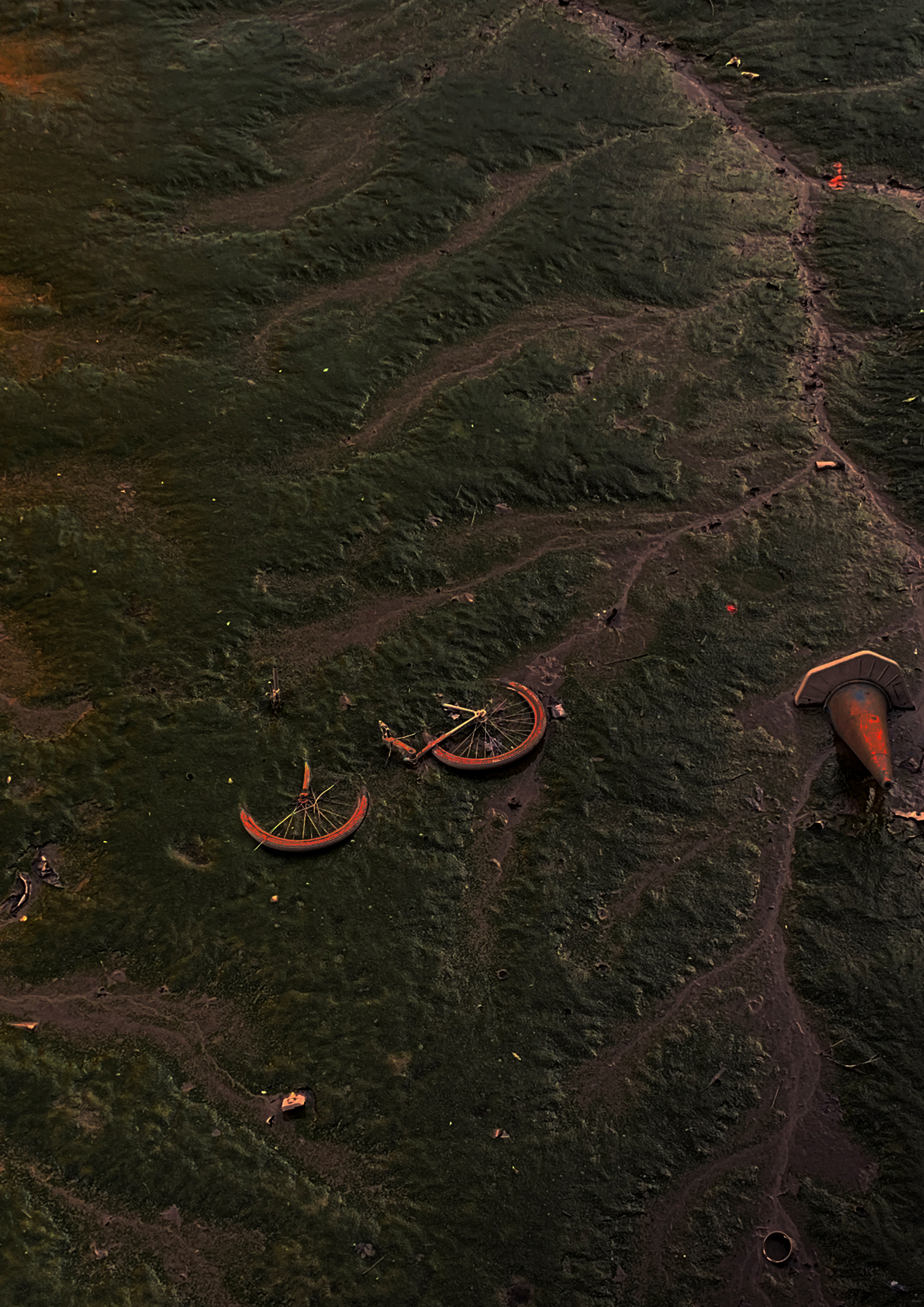
Bollards, distracted in the middle of the road, now stand with broken hips. Limbs spread on the floor like slugs. Slippery puddles of water mixed with blood. Parts of a motorbike that now look like a damaged transformer. The phone, apart from the cracked screen, is the only thing on the tarmac that remains working with a half dictated message still displaying.
hey, i’m sorry this isn’t working out for you anymore. You were always willing to give and give and I know you did, but I couldn’t keep up. I never gave you enough but I would like us to meet up before you decide to shut us down. Could you please meet me at...
During the crash, the Tongue was bitten off and flew out of the mouth. After landing on a street bollard, it lay there for about a week until itwas washed down the gutter and into a subterraneous world it had never experienced before. It was the end of its old life and the start of a new one.
After weeks of adapting it now existed as a rare creature 1, like an exotic slug, always moist and always feeling the ominous surroundings with its taste buds evenly distributed across its pinkish upper surface. To feed, it would act like a snake, elongating in order to twist itself around prey so it doesn’t escape (it would feed only on small bugs and bits of rotten food found in this new world). Once the prey has been caught and rendered breathless, the digestive process would be slow, feeding through the same buds that allowed it to sense, now tasting and breaking it down. To communicate, it would use all of the skills it had inherited from its dependent times, allowing its intrinsic muscles to shape it and therefore facilitate speech. The Tongue has evolved into a dangerous species, with verbal and sensory weapons. The only time it lays calmly and allows the nerve supply system to work lazily is when it sleeps. The Tongue reaches its fullness then, not pushing against the roof of the mouth, but resting on its mucous underbelly at night time.
Esther Merinero is currently studying toward an MA in Sculpture at the Royal College of Art. She has exhibited internationally and given lectures as well as curated projects at relevant institutions. Her work disassembles the existing hierarchy between the preconceived positions of subject and object, creating a new role-play based on a mostly fictitious narrative.